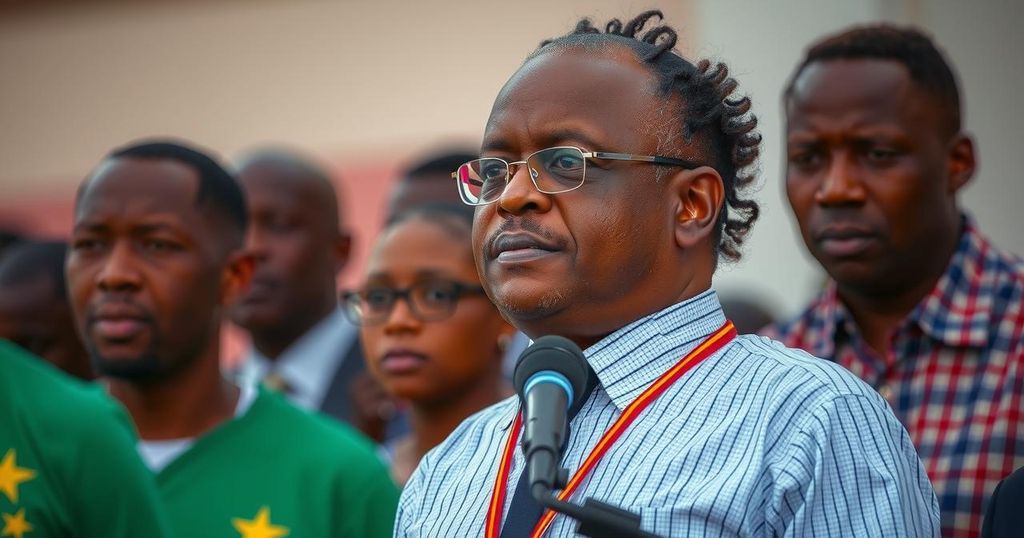Challenges Ahead for Mozambique’s President-Elect Daniel Chapo in Post-Election Crisis

Mozambique’s President-elect Daniel Chapo faces severe post-election challenges as unrest follows disputed election results. Despite plans for dialogue, tensions with opposition leader Venancio Mondlane threaten to destabilize both Chapo’s administration and the ruling Frelimo party.
Mozambique’s incoming President Daniel Chapo is poised to confront significant challenges in mitigating the country’s ongoing post-election turmoil. This crisis, which has the potential to severely disrupt economic operations and strain regional commerce, may compel Chapo to seek a compromise with opposition leader Venancio Mondlane. However, making such a concession risks inciting factional tensions within the ruling Frelimo party itself. On December 23, the Constitutional Council validated the election of Daniel Chapo, asserted as the winner of the disputed general elections held on October 9, defeating Mondlane. Following this announcement, President-elect Chapo outlined his intentions to initiate a reconciliation and dialogue initiative, scheduled for commencement on January 15, prior to taking office. Nevertheless, the council’s declaration incited renewed protests, as Mondlane’s supporters returned to the streets in response to his previous call for large-scale demonstrations, denouncing the election results, which Mondlane and numerous Western observers have characterized as fraudulent. The escalating unrest has posed significant challenges for Chapo’s presidency right from the outset, further complicating the political landscape in Mozambique.
The context of Mozambique’s political landscape is marked by a history of tensions between the ruling Frelimo party and the opposition. The recent elections, held on October 9, were marred by allegations of vote-rigging and widespread discontent, particularly from Mondlane’s supporters. As the Frelimo party has been in power since the country’s independence, the fear of internal dissent is prevalent, especially as Chapo attempts to stabilize governance while addressing both economic issues and civil unrest. A reconciliation initiative is a critical step; however, it must navigate the precarious dynamics between competing factions within the party and the opposition.
In summary, President-elect Daniel Chapo’s inauguration signals a pivotal period for Mozambique, amid escalating unrest following disputed elections. His efforts to foster dialogue and reconciliation with the opposition may be both necessary and fraught with peril, given the potential for intraparty conflict. The path ahead is fraught with challenges, as the weight of the political crisis bears down on his administration, necessitating a delicate balance between governance and social stability.
Original Source: worldview.stratfor.com







